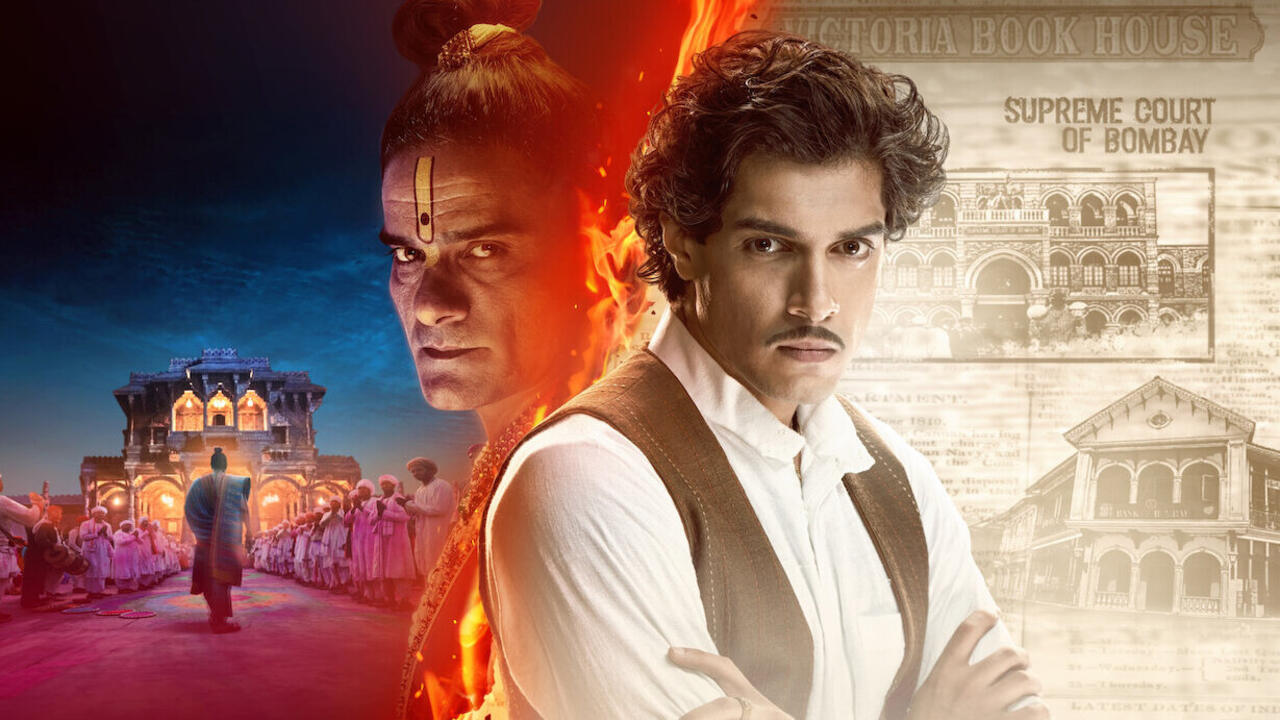
With Maharaj, YRF Entertainment continues to tell stories about the current India through old incidents. The Railway Men reminded us that people from all religions tackled a man-made disaster. Meaning: Stop attacking people who are not Hindu - who belong to other religions. Now comes Maharaj, who tells us that a leader who exploits religion deserves nothing but our utmost contempt. The people, too, shouldn't blindly follow every order without contemplation. Use your brain because those who have power want you to be as dumb as a zombie and as obsequious as a robot. These good intentions were initially scheduled to educate you last week itself, but Siddharth P Malhotra's period drama got halted by the Gujarat High Court because of some petitioners belonging to the Pushtimarg sect who, without even seeing a single frame of Maharaj decided that it "makes seriously blasphemous comments against Lord Krishna as well as the devotional songs and hymns."
What these petitioners actually ended up doing is that they provided free publicity to Maharaj. Gujarat HC has lifted the stay order, and the movie has now been casually dumped on Netflix - so casually that a film critic tagged me in the comment section of a post and informed me that the movie has been released on the streaming platform. Of course, I immediately clicked on the play button to see what the controversy was all about. Does it have any weight, or did it merely generate empty noises around something that should have been a blip on the radar? After watching Maharaj, I can confidentially say I support the latter notion. Maharaj is awful, atrocious - it's filmmaking at its worst. Like The Railway Men, Maharaj is so preoccupied with sending out good intentions that it forgets to be a pleasing cinematic experience.
There are plenty of issues in this film. Where do I even start? Let's consider the opening moments. It's not enough that we see Karsan Das (Junaid Khan) applying color on the cheeks of a widow or asking for chutney from an untouchable; we also need to listen to the voiceover that keeps telling us that Karsan is open-minded. He has a fiancée named Kishori (Shalini Pandey), who is introduced as JJ's (Jaideep Ahlawat) diehard devotee. JJ is a sinful religious leader who uses his influence for sexual exploitation. JJ selects Kishori for "charan seva," and when Karsan discovers what occurs behind the closed doors during this ritual, he confronts JJ and Kishori and tries to open the eyes of the latter. He fails, and Kishori is charmed by JJ's words. He calls her his "special girl." But Kishori soon finds out that JJ's compliments reek of emptiness, as he also calls other girls "special." This change in Kishori, ranging from being in love with her idol to facing a tremendous betrayal, deserved a complex treatment. Maharaj needed to tread this path slowly, step-by-step, to lend weight to the emotions. Malhotra, instead, rushes from one phase to the other with such speed that nothing registers.
It's this hurried pace that further undermines Maharaj. The film is in such a rush that one wonders if the filmmakers are simply trying to hastily narrate this story before another potential petition. Karsan mentions he should start his own newspaper, and in the blink of an eye, we see him inaugurating Satya Prakash. As soon as Karsan mentions his struggle to find witnesses for the court, a character conveniently enters the scene and resolves the problem. If only Karsan had made a comment about dealing with easily provoked individuals, Netflix would have won the Gujarat High Court case in a matter of seconds. If there's anything offensive about Maharaj, it's the script, penned by Sneha Desai and Vipul Mehta, that treats the audience as dim-witted creatures. Why else would we be subjected to that flashback after Kishori's death, where Karsan assures his fiancée he will never leave her? Kishori's death scene is clumsily executed and predictable. When Karsan delivers a grand speech after JJ closes the doors of his Mahal, a girl in the crowd starts whistling and encourages others to applaud this character. This is Maharaj's way of dictating how you should react to this moment. Perhaps if the movie had some vitality, we would have shared that girl's enthusiasm. But since it's clumsy and lifeless, we simply sit in our chairs and stifle our yawns.
Maharaj marks Junaid Khan's acting debut (he is Aamir Khan's son), and his lackluster performance is a significant drawback. The thing is, Khan never acts. He merely makes faces. The other actors are also equally, if not more, substandard. Sharvari Wagh overacts, Shalini Pandey looks lost, and Jaideep Ahlawat gives a one-note performance. Maharaj hurts the sentiments of people who love cinema. I, too, want to file a petition: Make better films for the audience instead of heavily relying on good intentions.
Final Score- [2/10]
Reviewed by - Vikas Yadav
Follow @vikasonorous on Twitter
Publisher at Midgard Times
Hi Everyone, after a due consideration, we have decided that we will be open for donations to help us in managing our website. We will be greatful for any kind of amount we receive. Thanks!
— Midgard Times 🎬 (@Moviesr_net) January 4, 2026
PayPal- [email protected] pic.twitter.com/DlNNz5Npm5
Get all latest content delivered to your email a few times a month.
Bringing Pop Culture News from Every Realm, Get All the Latest Movie, TV News, Reviews & Trailers
Got Any questions? Drop an email to [email protected]